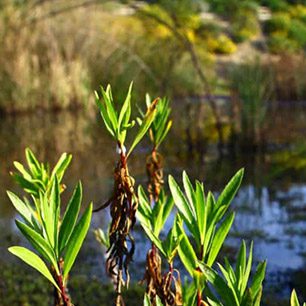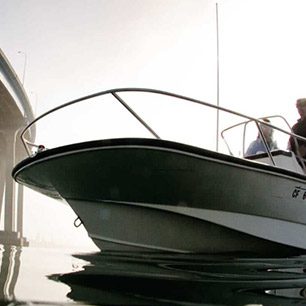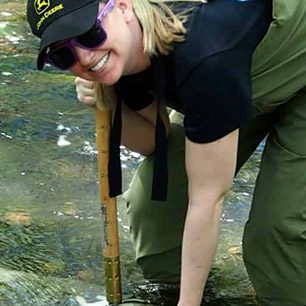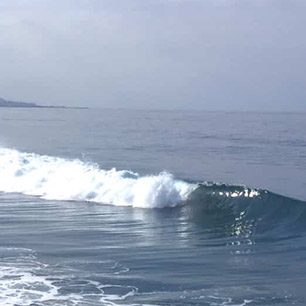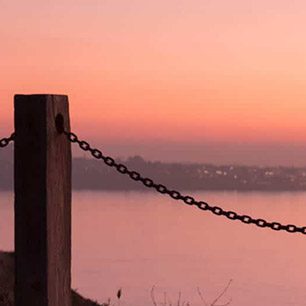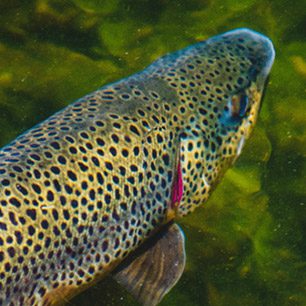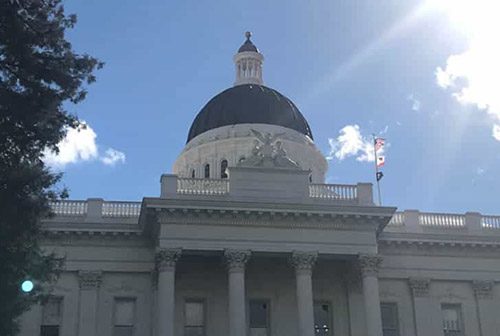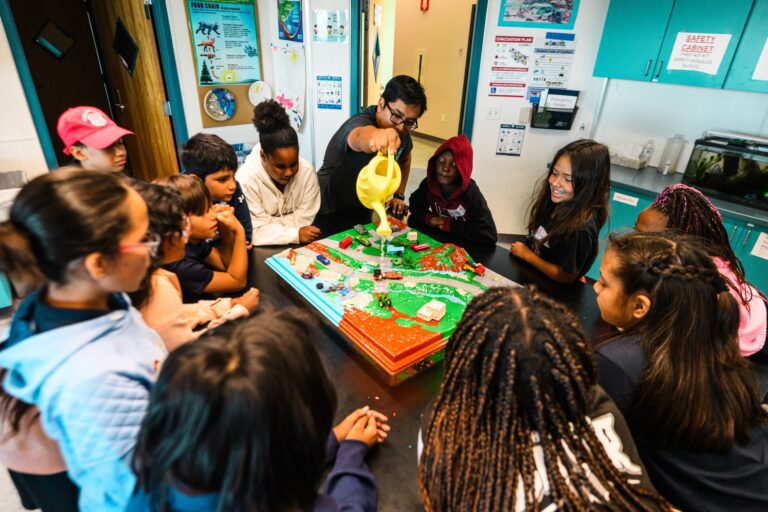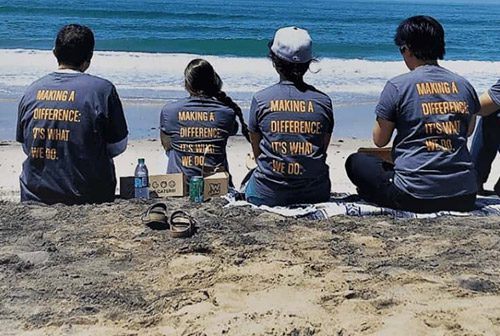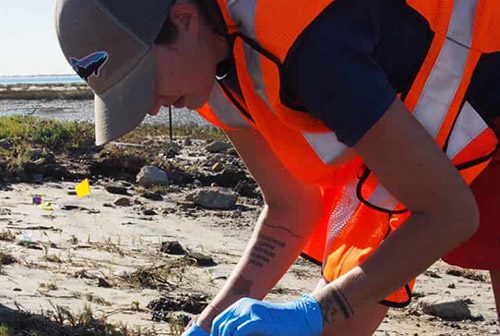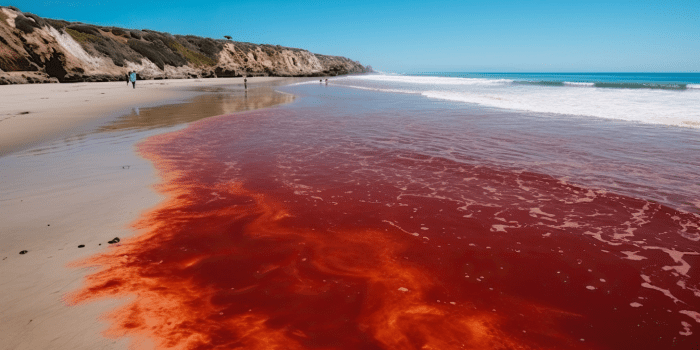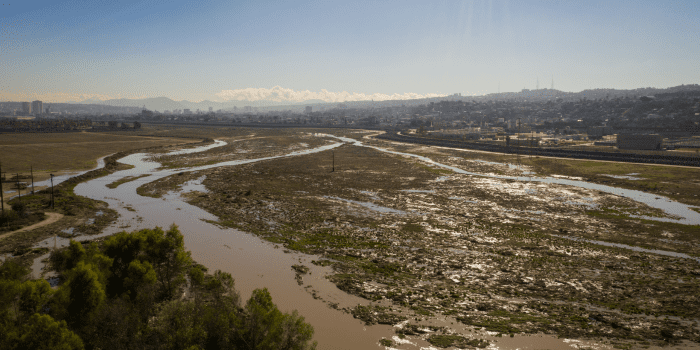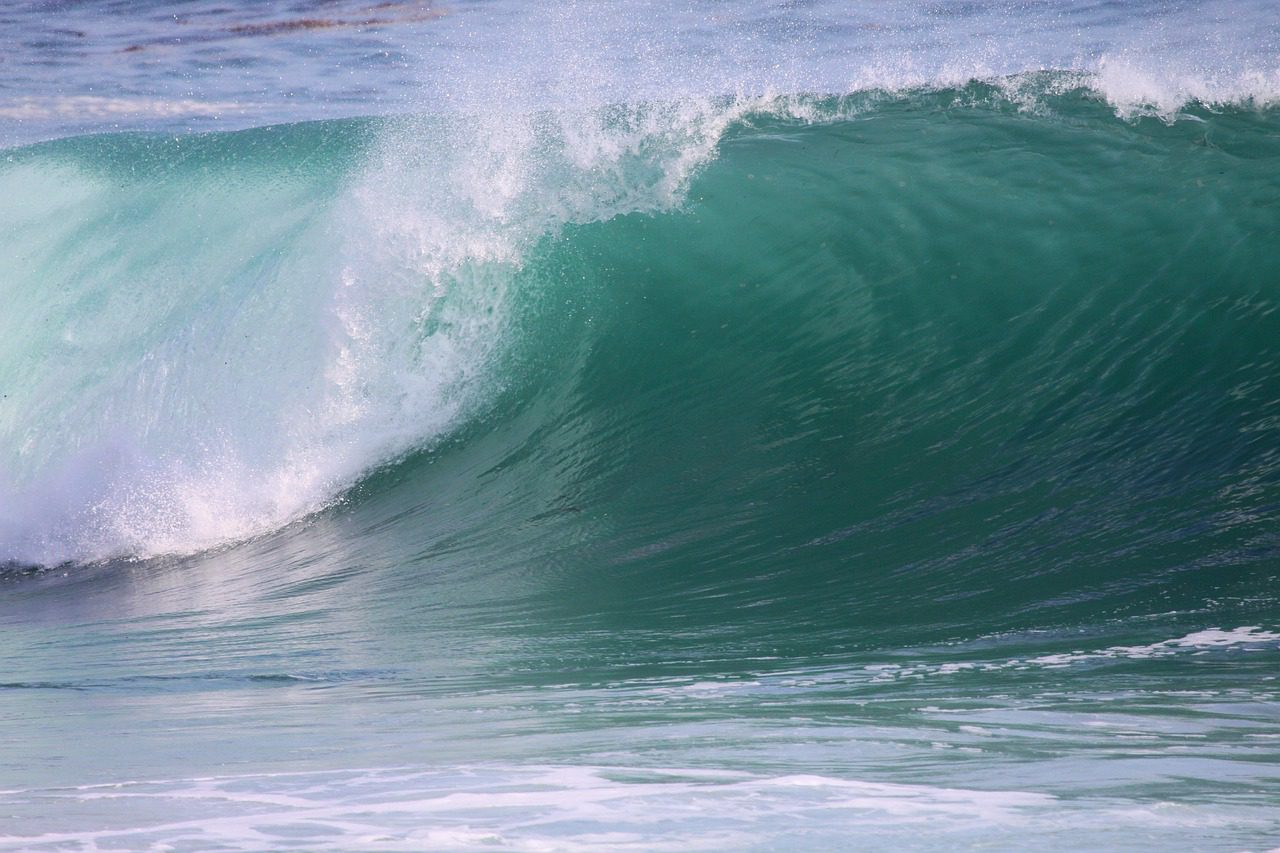High Tech High Blog Series: Blog 6 of 7
What comes to mind when you read the word “fertilizer?” Lawns? Farms? Family garden projects? What about water pollution and dead zones?
It’s hard to believe a substance famous for helping plants flourish in one environment can destroy other environments only a few miles away in our lakes, rivers and ocean.
Fertilizers are made up of mostly nitrogen and phosphorus which, when applied sparingly and responsibly, can create a healthy, strong plant. But when overuse and over watering cause these compounds to flow into other areas, they cause aquatic plants to grow out of control and overrun their delicate ecosystems.
This is Where YOU Come In.


These plants love the San Diego climate as much as you do:
– Miniature Hollyhock – White Sage
– California Lilac – Wooly Blue Curls
– Manzanita – Desert Mallow
– Baby Blue Eyes – Ian Bush
And many more native plants.
If you can’t bear to part with your beautiful garden, try a natural fertilizer like recycled coffee grounds (free from Starbucks!) before you heap on the chemicals. Remember, there’s always a natural alternative. You just have to be willing to find it.

